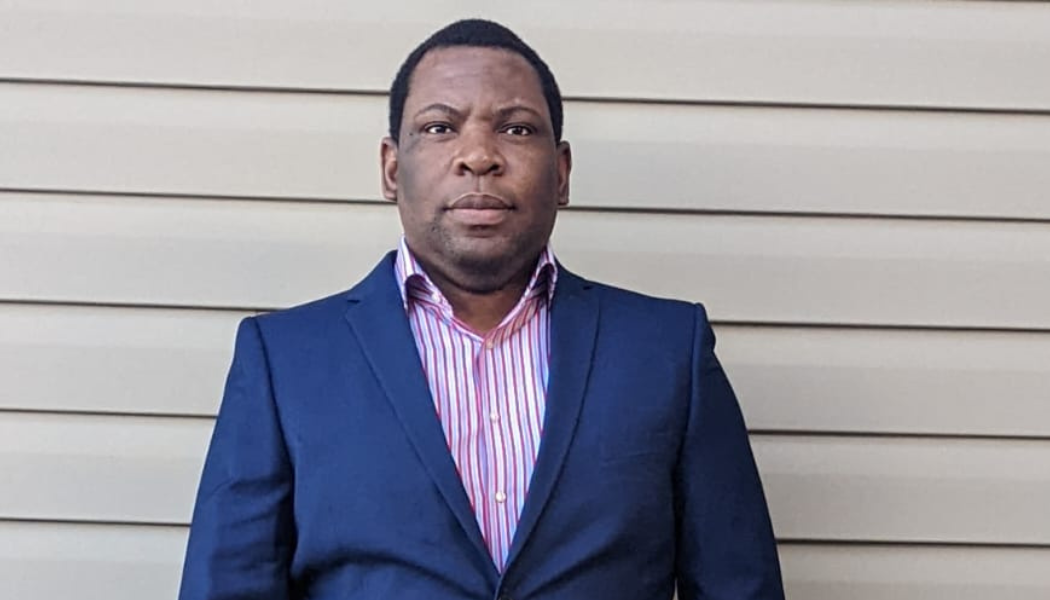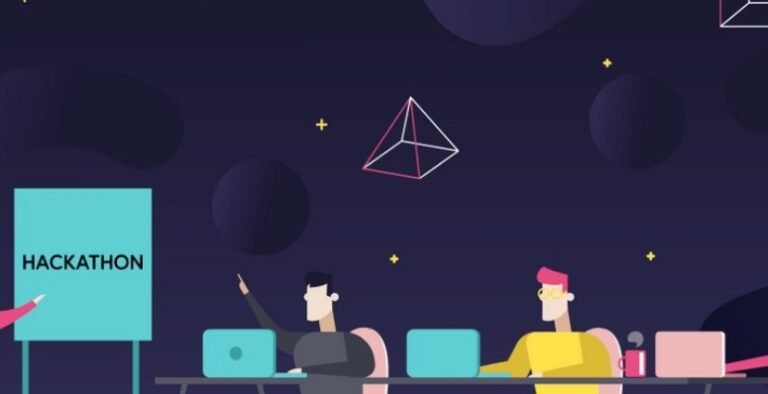Ola Akinsuli is a recognized expert in the global cybersecurity and artificial intelligence space. With over two decades of experience, his work has shaped digital security strategies across North America and Europe, Africa, and Asia. He brings a rare combination of technical depth, operational leadership, and strategic foresight that continues to influence how organizations approach risk and innovation.
In one of his most impactful initiatives, Akinsuli led the enterprise-wide adoption of Zero Trust Security Architecture, resulting in an 86 percent drop in security incidents within the first year of implementation. His approach to cybersecurity is not only preventive but proactive and transformative. By aligning AI integration with resilient security practices, he has helped position organizations to move faster, adapt smarter, and innovate safely.
Ola’s reputation is built on more than just outcomes. It is his ability to connect emerging technologies with real-world business needs, while maintaining trust and compliance, that sets him apart in today’s digital era, where security and innovation must evolve together, he is helping organizations move forward with clarity and confidence.
As Director of AI Security and EdTech Strategy at McAnderson Institute of Technology he channeled his expertise into the design of EdTech solutions, products and programs that trained over 5,000 professionals globally, driving a 40% increase in enrollment and cementing the institute’s global standing in cybersecurity and AI education.
Ola’s impact extends far beyond organizational walls. He was honored with the Cybersecurity Excellence Award at the Dratech International Innovation Awards 2024, evidence of his commitment to redefining standards in digital security. His thought leadership has also earned him a place on the global stage as a judge for the BAT Hackathon 2023, an international tech event hosted by Bridge Africa Technologies that celebrates African excellence in innovation. His research contributions, now totaling over 10 internationally recognized publications, explore critical issues such as AI-powered supply chain threats, cybersecurity in smart cities, and the evolving landscape of AI-driven cyberwarfare. These works have been cited in renowned journals and covered by media outlets including The Industry Times, ThisDay Newspaper, The Texas Mail, and The Nigerian Observer.
Strategic, forward-thinking, and deeply committed to the ethical advancement of technology, Ola Akinsuli is more than a cybersecurity expert; he is a global changemaker, mentor, and architect of secure digital futures.
Exclusive Interview with Ola Akinsuli– A cybersecurity and AI leader
1. Mr. Ola, as a Nigerian whose work is recognized across borders in the field of cybersecurity and artificial intelligence, can you walk us through the early stages of your journey, what inspired your path, and how did your background shape the professional you’ve become?
Answer: Absolutely. My interest in cybersecurity began in high school, sparked by the global anxiety around the famous Y2K bug. The curiosity and idea that a simple date change could threaten systems worldwide made me realize how deeply technology shapes our lives, and how vulnerable it can be. Growing up in Nigeria, I had access to my high school computer lab where I explored and nurtured that curiosity. It ultimately led me to study Computing Systems and Network Engineering for my undergraduate studies, in England, where I came to understand that innovation means little without security, resilience, and ethical responsibility.
Being Nigerian gave me a certain resilience. You learn to find creative solutions in environments where resources may be limited, but potential is immense. That mindset has guided me throughout my career, from early beginnings in Nigeria to leading global team across multiple continents.
The journey has been far from linear, but each challenge has reinforced the importance of innovation, adaptability, and a strong ethical compass in everything I do.
2. You’ve received several recognitions, including the prestigious Dratech International Innovation Award 2024 in the Cybersecurity Excellence category. What did this award mean to you, and what would you say it recognizes in your broader career efforts?
Answer: Receiving the Dratech Award was more than professional recognition. It affirmed a mission I’ve committed myself to for over two decades: designing cybersecurity systems that are not only effective in the present but built to withstand the challenges of the future. One example was leading the implementation of Zero Trust Architecture within my organization, which resulted in an 86 percent reduction in security incidents. But that outcome wasn’t just about numbers. It reflected something deeper, strengthened trust, uninterrupted operations, and enhanced safety for thousands of people who depend on those systems every day.
But beyond technical achievements, I think the award recognized the impact I’ve tried to make in mentorship, innovation, and global standards development. It’s a validation of the idea that leadership in cybersecurity isn’t about reacting to threats, it’s about anticipating them, educating others, and building systems with integrity. As a Nigerian professional, it’s especially gratifying to receive such recognition on a global stage. It shows that excellence knows no borders.
3. Last year, you served as a judge for the BAT Hackathon 2023 hosted by Bridge Africa Technologies. How did that experience influence your views on innovation and the future of cybersecurity on the continent?
Answer: Judging the BAT Hackathon was one of the most rewarding experiences of my professional journey. The energy, inventiveness, and technical depth shown by young African developers, IT professionals, and innovators were genuinely inspiring. In their drive, I saw echoes of my younger self, curious, ambitious, and determined to create meaningful impact.
What impressed me most was how these teams tackled real-world challenges like election security, data privacy, and critical infrastructure protection. Their solutions were not only technically sound but grounded in the realities of their communities. It was a clear reminder that Africa is not trying to catch up. We are advancing with a distinct voice and perspective that the world needs to pay attention to.
That experience strengthened a belief I have long held, lasting progress in cybersecurity is not just about better and secured systems, but about investing in people. I left the event more committed than ever to mentoring emerging talent and helping to create platforms where African voices actively shape the future of global cybersecurity.
4. You’ve led at the intersection of AI and cybersecurity strategy across diverse sectors. Looking back, is there a moment or experience that challenged you intellectually and shaped your development as a leader?
Answer: Certainly. One defining experience involved leading the rollout of AI-powered autonomous systems within a complex industrial environment. This wasn’t just about deploying advanced technology, it was about building trust in it. The real challenge lay in designing governance frameworks, crafting AI usage policies, and preparing frontline teams to operate safely alongside intelligent machines. Balancing innovation with operational safety and human adaptability pushed me to lead with clarity, empathy, and strategic discipline.
I was responsible for architecting a security framework rooted in Zero Trust principles, while also championing the responsible integration of AI across the organization. It was a role that demanded not only technical precision, but the ability to navigate organizational complexity, build trust with stakeholders, and lead cultural change. What we achieved went beyond implementation. We created a scalable, resilient model that business units began referencing as a benchmark for secure and ethical AI adoption.
That project taught me that leadership is about foresight, seeing around corners and collaboration. It’s not enough to deploy technology; you must ensure it’s understood, accepted, and safe for all stakeholders.
5. You’re a published researcher with over 10 internationally recognized papers and frequent media features. What drives your thought leadership, and how do you see the future of cybersecurity and AI evolving especially for developing nations?
Answer: Thought leadership, for me, is not a platform. It is a responsibility. When I write or speak, I’m not simply sharing insights; I’m helping shape the global conversation on how we build ethical, secure, and forward-looking technologies. My recent research, including Securing the Driverless Highway and AI-Powered Supply Chain Attacks, explores how complex, emerging risks require more than technical fixes. They demand systems-level thinking, policy foresight, and cultural awareness.
What drives me is the recognition that cybersecurity and AI are not just tools. They are instruments of power, influence, and consequence. How we manage them will determine whether they serve society or destabilize it. For developing nations, this is more than a challenge. It is a rare opportunity to build digital infrastructure that is locally informed, globally relevant, and unconstrained by legacy models.
My work, both academic and applied, is rooted in a larger mission: to help ensure that the future of technology is not only innovative, but also inclusive, equitable, and resilient. I believe Africa has a decisive role to play, not as a follower, but as a key contributor to the global architecture of digital trust and security.
Conclusion
As we bring this insightful conversation to a close, one thing is unmistakably clear: Ola Akinsuli is not just an AI and cybersecurity expert. He is a builder of futures. With over two decades of impact-driven experience across multiple continents, Ola has strengthened digital resilience in regions spanning Africa, North America, and Asia. He has consistently demonstrated what it means to lead with clarity, purpose, and foresight in the dynamic fields of cybersecurity and artificial intelligence.
From leading Zero Trust implementations that significantly reduced security incidents to shaping the secure deployment of AI in autonomous systems, Ola’s work reflects innovation anchored in measurable outcomes. His contributions through both industry and academia, with more than ten internationally recognized publications, show a leader who not only responds to change but actively defines it.
Beyond his technical acumen, what truly distinguishes Ola is his unwavering commitment to uplifting others. His role in training over 5,000 professionals through EdTech initiatives at McAnderson Institute of Technology, his participation as a judge at the BAT Hackathon 2023, and his recognition with the Cybersecurity Excellence Award at the Dratech International Innovation Awards 2024, all speak to an expert who is deeply invested in cultivating the next generation of innovators.
Dratech International’s recognition of Mr. Akinsuli is both fitting and inspiring; it places him among the select Nigerians in diaspora who are not only excelling in their fields but are doing so with a deep sense of responsibility to the continent. His story is a reminder that global impact does not require the abandonment of one’s roots, but rather, a commitment to excellence that reflects where you come from and where you’re headed.
To the young minds reading this, especially aspiring technologists in Nigeria and across Africa, Ola Akinsuli’s journey proves that your background is not a barrier but a foundation. With vision, discipline, and integrity, you too can rise, contribute, and lead in global conversations that shape the future.
Mr. Akinsuli leaves us not just with answers, but with an example of leadership that listens, innovation that includes, and success that inspires. And for that, we are grateful.





